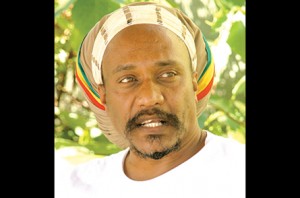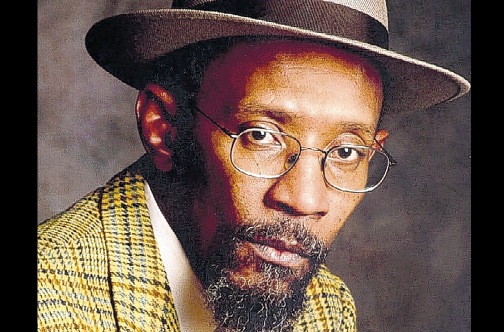Linton “Kwesi” Johnson–
IN 1970s Britain, the sounds of Marley, Burning Spear and Linton Kwesi Johnson were the soundtrack for militant black youth protesting racism in that country.
On October 20, Johnson will receive the Order of Distinction for his contribution to the development of Jamaican music.
The OD, Jamaica’s fifth highest civic honor, will be awarded during the annual National Honours and Awards ceremony at King’s House.
Johnson was born in Clarendon but moved to Britain as an 11-year-old in 1963. Widespread racism and social indifference toward blacks inspired his recordings in the early 1970s, which many musicologists cite as the genesis of dub poetry.
Some of Johnson’s most potent work such as Five Nights of Bleeding (For Leroy Harris), Doun De Road, Song of Blood and It Dread Inna Ingland (For George Lindo) can be heard on the 1978 album, Dread Beat an’ Blood, distributed by Virgin Records.
The set is a dub poetry standard. It has inspired the genre’s most popular exponents including Oku Onura, Mutabaruka and Yasus Afari.

Yasus Afari
Afari says he first heard Dread Beat an’ Blood in 1984 while he was a student at the College of Arts, Science and Technology (now the University of Technology). It had an instant impact.
“LKJ is hugely influential as a dub poet and social activist in the worlds of poetry, dub poetry, reggae, literature and black culture. This is so largely due to the fact that he is the very epitome of the social conscience of Britain in his generation and in his era and at a critical juncture in British society and world history,” said Afari, who honored Johnson at his recent Jamaica Poetry Festival in Kingston.
Singer Marcia Griffiths, musicians Bobby Ellis, Dwight Pinkney and Phil Chen, Carl Brady (a founding member of Byron Lee and the Dragonaires), sculptor Laura Facey, dancer Patsy Ricketts and theatre stalwart Douglas Bennett have also been awarded ODs.









